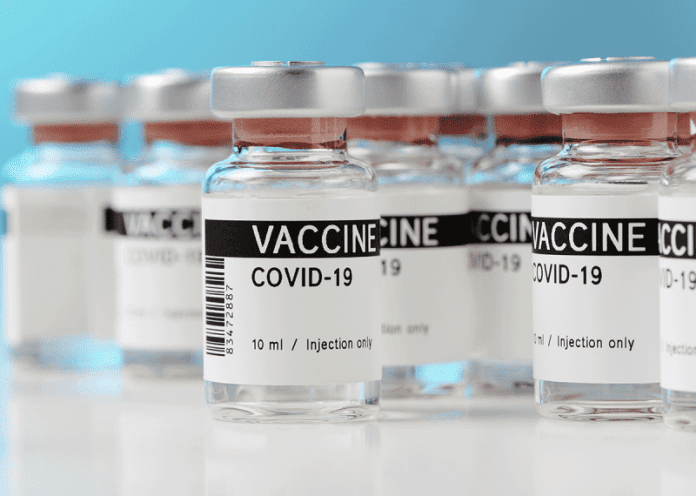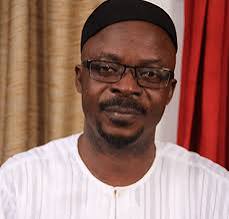On Thursday, the federal government provided an update on its efforts to combat the COVID-19 epidemic in the country, stating that it has spent N122 billion on Johnson & Johnson vaccines for the general public.
It did say, however, that the number of delta variant cases reported so far across the country did not require a lockdown like the one that occurred after the pandemic last year.
The government took notice of the physicians’ ongoing strike, which began at the beginning of the month under the auspices of the National Association of Resident Doctors (NARD), and threatened to implement the “no work, no pay” policy if they did not return to work.
Meanwhile, the cholera outbreak is said to have spread to 22 states, infecting 31,000 individuals and killing 816 people.
Dr Faisal Shuiab, Executive Director/CEO of the National Primary Healthcare Development Agency (NPHCDA), said the federal government has procured over 29 million single dose of the dreaded Coronavirus pandemic (COVID-19) in order to further combat the spread of the disease in the country (over N122 billion).
He claimed that this would allow the country to vaccinate 70% of the population who were eligible.
According to him, the 177,600 doses of Johnson & Johnson vaccines that arrived in the country on Monday were part of a total of 29 million doses that the government had procured.
“Lockdown is a very, very last measure that countries are taking, because lockdown stifles economic activity, restricts your own freedom, and your business – corporate business, government business, private business – all are affected,” said Minister of Health, Dr. Osagie Ehanire, while speaking on the third wave of Covid-19 caused by the delta variant.
“As a result, it’s not something you can do casually. And, of course, we learned a lot of lessons when we were forced to have that lockdown at the start. You know, back then, the government gave palliatives to help people cope with the effects; if they couldn’t go to market, they couldn’t do business. However, this is not the government’s goal. A lockdown is something that no government likes to do. In places where they have faced a real danger, such as the United Kingdom, they have had to implement what is known as a precision lockdown. In reality, Israel recently declared that it is implementing a lockdown, although it is not a generalized lockdown, but rather a targeted lockdown of specific places.
“Many countries use what is known as precision lockdown to ensure that not everyone is affected, but only particular areas are, in order to avoid too much economic and social harm. And we are not yet to the point where we feel the need to go into lockdown mode. And, as I speak to you, several countries are on some form of lockdown. If my memory serves me well, at least six or seven countries are implementing some type of lockdown. Right now, we don’t have that on the table.”
Under the auspices of the National Association of Resident Doctors (NARD), the minister also used the forum to appeal to striking doctors, saying that going on strike in the middle of the third wave of the Covid-19 pandemic, with the arrival of the Delta variant, cholera outbreaks in 22 states, and Marburg virus (similar to Ebola) outbreaks, was not only dangerous but unconscionable.
Read also: Nigerian Embassy in London has been shut down after personnel tested positive for Covid-19
If the physicians continued on continuing their strike, he said the federal government would not hesitate to implement the International Labour Organization’s “No Work, No Pay” principle, emphasizing that they would not be compensated from tax payers’ money for doing nothing.
He also denied threatening to fire resident doctors, who have been on strike since August 2 over alleged bad working conditions, explaining that all of his interactions and conversations thus far have been to persuade them to end their strike.
Ehanire went on to say that the physicians’ strike was not a suitable moment for them to go on strike.
“We’re on strike for the third time this year,” he said. That is not acceptable. We’ve made an appeal to them. We’ve been holding lengthy discussions with young doctors to explain to them that they, too, have a responsibility to their country.
“Every country in a difficult circumstance should recognize that accountability rests with all of us; if you have an issue or a grudge, talk about it. If we can’t fix it right now, let’s keep talking about it until we come up with a solution, but don’t stop working.
“I believe Nigeria is the only country in the world today where doctors are refusing to work in the face of a national security threat. So that’s what we’ve suggested. There hasn’t been any danger. Nobody made any threats. All we’re doing is pleading. We’re all doctors who went through the same residency program.
“We’re saying now isn’t the time; let’s keep talking about it.” Do not endanger people’s lives. That’s what the Labour Minister and the Health Minister have been saying. Nobody has been threatened in any way.”
“Yes, but that’s a regular thing,” the minister remarked when reminded of the threats of no work, no pay. That is the suggestion of the International Labour Organization (ILO), which states that if you did not work, why would you take… Your wage is paid using public funds.
“So, why should you be paid if you didn’t work, because if that’s the case, you can be encouraged to stay at home for six months and your paycheck comes from public funds, from taxpayers’ money, when you haven’t done anything for the community?”
“So, no work, no pay isn’t just a government regulation; it’s explicitly written in the International Labour Organization that if you don’t work, if you haven’t provided any service, you can’t expect regulation, because you can’t go to the market and buy anything for nothing. You must put something down, work must be put down.
“You can’t just go to the market and take anything you want without paying for it. As a result, if you labor, you will be compensated. We also believe that the government should fulfill its commitments to pay what has been agreed upon. We’ve stated that we’ll press for it, and we’re working with the salaries and wages commission and the head of service to do so, as well as paying all insurance dues.
“However, we cannot go against the ILO’s recommendation to pay individuals who do not work. I mean, I believe you can defend that viewpoint in front of God and man, but there are no threats. These young doctors are professionals, but they are also young people, whom we must mentor and treat to the best of our abilities.
Read also: PDP asks court to remove Yobe governor Buni from his APC leadership
“So, the strike isn’t something we want right now. We’d want to use this platform once more to ask doctors to return to work, and we’d like to bargain. That is something we can accomplish as a group. The Ministry of Health assists them in a variety of ways. But part of the issue is that some of their grievances, or demands, are directed at state governments rather than the federal government. So, why go on a statewide strike if the state government has not paid some people’s salaries?
“We say if you want to talk to the state, I’ll back you up and make an appeal to the state. Seven of the original 12 requests they made were connected to the government. Because they are not federal, the federal government cannot compel a state to pay you a specific salary. However, many of the issues that concern us at the federal level aren’t even related to the Ministry of Health.
“However, we support them and believe that a strike is not an effective tool to deploy. And especially when the country’s health is in jeopardy, when people may volunteer to work in other countries. Now is not the time to discontinue your own service. And I believe we will continue to urge young doctors not to use strike as a tool, especially at a time when the country is in desperate need of help.”
Professor Mojisola Adeyeye, Director General of the National Agency for Food Drug Administration and Control (NAFDAC), explained that recent delays in the use of moderna vaccines donated by the US were due to laboratory testing, where some insignificant quantities had bar-coding errors that had to be sorted.
According to her, NAFDAC has been working around the clock to rectify minor issues that had nothing to do with vaccine quality, and that 12,000 Nigerians experienced mild side effects during prior vaccination campaigns.
Dr Chikwe Ihekweazu, Director General of the National Centre for Disease Control (NCDC), stated the latest cholera outbreak had now spread to 22 states across the federation, with over 31,000 individuals sick and 816 deaths.
Join Television Nigerian Whatsapp Now
Join Television Nigerian Facebook Now
Join Television Nigerian Twitter Now
Join Television Nigerian YouTUbe Now






















